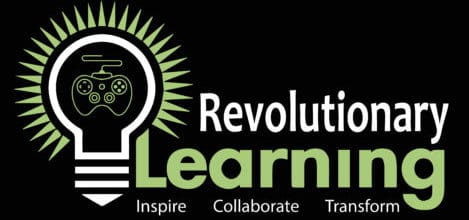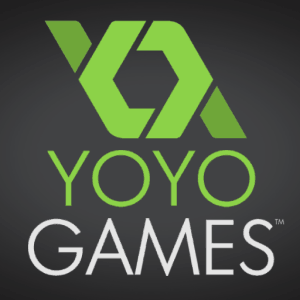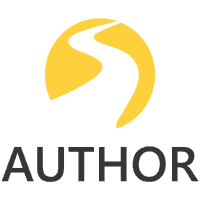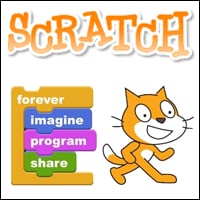One of the benefits of advancements in technology has been the creation of high powered tools that instructors can use on their own in creating games, web sites, interactive learning experiences, resources, portfolios and more. These tools also extend directly to students and empower even those, as early as the primary grades, to be makers or producers of knowledge and not just consumers. However, for tools to be effective in the improvement of learning, performance, positive behavior or social change they need to be applied in a sound pedagogical framework with proper scaffolding and metrics to measure the tools’ effectiveness. This section provides a short inventory of excellent tools that can be used by both instructors and students in a very positive fashion to promote learning and growth. It is always to the user’s advantage to learn the tool to a reasonably proficient degree through tutorials (many are free with the tool), apprenticeships, continuing education or professional development, before applying them to a learning situation.
The cost of tools varies greatly, but in virtually all cases there are significant discounts for educational use. Make sure to investigate educational pricing options and use trial versions of the tool before making a purchase.
Adobe Creative Suite Cloud
http://www.adobe.com/creativecloud.html
Adobe’s extensive suite of tools remains essential for all creative individuals and teams. Educators can make use of the tools for teaching graphic narrative, image manipulation, creating comics, digital stories, short animations, editing videos and so on. It is more cost effective to lease the entire suite than single products, and you can lease on a monthly or yearly basis with generous discounts for educators. Photoshop is still the standard for image editing, and Illustrator standard for vector graphics, but there are numerous other useful tools with various learning curves from easy to difficult. Spark, for instance, can be used with ease to make visual stories. Game intensive tools include Gaming SDK for creating Action Script games (think of the many early and creative Flash games), Fuse (in Beta) for simple 3-D character creation, Character Animate (also Beta stage), and Adobe Animate (the re-envisioning of Flash). Audition, the sound editing tool, might be one of the best next to Photoshop.
badgr
The use of digital badges for recognition continues to evolve. As a purely extrinsic motivation, badges can be counterproductive, but if used, effectively, they can be a powerful tool motivating life-long learning, and more, importantly, used for recognizing competency-based skills that can show prospective employers, publishers and others an individual’s mastery of a skill set(s). Badgr is an open source tool for issuing and managing badges. The future of learning most likely will use some form of digital badges for credentialing learning not recognized by the traditional credit bearing higher education system.
Blender
An excellent, free open source 3-D program. It is best known for 3-D modelling, but can be used for any number of creative art projects including animation, sculpting and simulation. The newest version also has a game engine allowing for 3-D game development within Blender. As with any 3-D tool, the learning circle for non artists is high, but as an open source product with a vibrant community the software merits attention form educators and amateur/hobbyist designers.
Game Maker Studio
http://www.yoyogames.com/gamemaker
An ideal place for educators or nonprofessional designers to begin the game creation process. Game Maker has a full suite of easy to use drag and drop, no programming needed, features that can produce compelling 2-D games. It is low cost and can output to most platforms, including mobile.
GradeCraft: The Gameful Learning Management System
GradeCraft is a learning management system purpose-built to support gameful learning. Gameful learning focuses on re-crafting assessment systems to better support learner autonomy, competence, and relatedness, along with fostering a playful environment that encourages risk-taking and exploration. The central feature of GradeCraft is the “Grade Predictor,” which allows students to plan a path to their self-defined success through course assignments and activities. GradeCraft also supports, badges, leveling, unlocks, and a robust set of analytic tools for use by both learners and instructors. You can explore GradeCraft at https://www.gradecraft.com/ and gameful learning at http://gamefulpedagogy.com/
The Grade Crafter
https://www.thegamecrafter.com/
An innovative company based in Wisconsin, the Grade Crafter allows designers, educators, and hobbyists the opportunity to create and print card and board games on demand (web-to-print). You upload art assets and documentation and the company will put the game together for you. Templates are available to help you build your game. There is also an integrated store. The Grade Crafter also hosts a useful podcast. It is an excellent example of democratizing the design and publication process for independent designers or even educators or students wanting to design and sell small quantities of a game for custom purposes. This tool is also great for play testing. Moreover, there is an excellent community component with forums, contests, a Hall of Fame, auctions and other useful resources.
Minecraft Education
https://education.minecraft.net/
Few games have proven as powerful as the open world game Minecraft. The education version allows for students to build worlds, to code, collaborate, create and problem solve across all disciplines. The game can be effectively used in the primary school grades on up and though high school. The website introduces educators to the game’s learning possibilities with starter kits, discussion forums, lesson plans and sample worlds.
Muzzy Lane Author
A premiere video game design company North of Boston specializing in games and apps for higher education produces an excellent easy to use authoring tool that empowers professors, subject matter experts and others interested in the use of games, and others to design their own short highly interactive learning experiences. A range of templates allows for powerful narrative based learning situations that encourage students to think critically, role play difficult decision making situations and apply knowledge in real world context. Muzzy Lane has various individual and institutional licensing options available. Author is ideal for designing short bursts of deeply engaged learning careful sequenced in larger learning units.
Unity
Unity is the premiere game engine for developing 3-D games. It can also be used very effectively for 2-D and for VR development. Unity has an asset store, support for multiple platforms, including the web, and an excellent user community. There is a rather high learning curve, but, ultimately, if you are an educator with a serious interest in video games, learning at least the basic skills of Unity is invaluable. There are numerous project based tutorials, workshops, and events to help you learn this tool. To be efficient, you will need to learn either Javascript or C# programming.
Unreal Engine
Unreal Engine, like Unity, is a powerful game engine for making both basic games and highly sophisticated immersive 3-D games. Unreal Engine can be used for VR development. It has a full suite of tools and multiple platform support.
Scratch
One of MIT’s exceptional learning tools, Scratch can be used by kids in primary school grades to create games, interactive stories and animations. It is very easy to use and promotes creative thinking and logical reasoning. Scratch is also an ideal tool to introduce kids to coding. The best place for teachers to start is the ScratchED website where educators can find stories, resources, and a rich learning community.
Construct 2
Not many teachers know how to code, but they can still build advanced games and work with students to have them build their own games as well, using this intuitive, event-based game, drag and drop development tool. Students and teachers can both learn on their own in a rapid fashion.
Articulate 360
Although not a game development tool, articulate’s 360 eLearning tool is a useful for creating online courses and training,as well as rich and responsive interactive experiences for all learning devices.
branch track
Branch track is an e-learning tool used for scenario-based learning and simulations. Clark Aldrich uses branch track in designing many of his Short Sims. It creates powerful learning experiences within a narrative framework.














